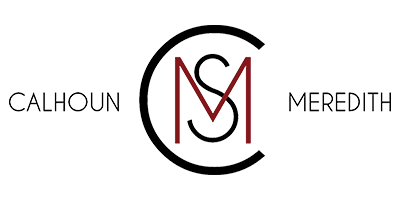
Menu

Menu
Personal injury is a legal concept that covers a wide range of situations when a person suffers bodily injury, property damage, and economic losses as a result of someone else's fault. The responsible party may be another individual, a legal entity, or a public authority. According to the law, personal injury victims have the right to seek fair compensation for their losses. However, how do people know that they have valid claims? At Calhoun Meredith, a team of experienced personal injury attorneys is always ready to explain your legal rights and offer you professional legal representation. In this article, we will explain what exactly represents a valid Texas personal injury case. These explanations are meant as a general purpose source of information to help you determine if you have a valid personal injury claim.
Personal injury laws recognize two parties to a case: the fault party and the personal injury victim. The at-fault party is further defined as an individual or legal entity that acted with:
The most common instance of a personal injury case that can result in claim settlement negotiations or a civil lawsuit is when the responsible party was negligent towards the victim. In this case, the claimant (or plaintiff in a personal injury lawsuit) must prove that:
Moreover, in order to prove that you have a right to seek financial compensation, you have to prove that you were less than 50% at fault for the respective event (according to the comparative negligence principle applicable in Texas personal injury cases).
The strict liability principle means that a party is liable in a personal injury case even if they did not act in a negligent manner towards the injured party or did not owe them a duty of care. This is the principle that makes an employer responsible for the personal injury accidents caused by their employees (for example, in a trucking accident, the trucking company has a strict liability towards the accident victim) or in accidents caused by a defective product.
These cases are very rare, but they do happen. In cases of attempted murder, assault and battery, the responsible party intended to harm the victim. In this instance, there is no need to prove duty of care or determine the victim's proportion of fault for the event that caused their injuries and economic damages. Also, in this case a court is likely to award the victim punitive damages (also known as exemplary damages). This is not compensatory damage for the injured person, but rather a punishment for the at-fault party's reckless and malicious behavior.
Now let us look at the most frequent types of accidents and events which generate a valid personal injury claim:
Motor vehicle accidents are by far the most common example of a personal injury case. They can be defined, in more detail, as:
Auto accidents are mostly caused by a negligent driver who was:
In other instances, other factors caused or contributed to the accident, such as a malfunctioning vehicle, poorly maintained roads, or inclement weather. In each instance, an experienced attorney will identify the liable parties responsible for your accident injuries.
There are many situations in which employees suffer injuries at their workplace. The most common instances involve:
In this cases, the employers have a strict liability towards the employees, because they are supposed to maintain the workplaces safe and free of hazards for the people working there.
Premises liability cases are defined as situations when a person is injured on someone else's property. This property can be a private residence, a supermarket, a parking area, a public building or a public pool. When a person had a legitimate right to be present on a property as an invitee or an agent, the property owner or manager has a duty to ensure that the respective property is safe and free of hazardous or dangerous conditions.
The most frequent examples of premises liability cases presented to a personal injury attorney are:
In some cases, a product has a design error or manufacturing defect which makes it dangerous to use, causing physical injuries and property damage. In this strict liability case, a personal injury law firm will identify all the responsible parties and hold them liable to pay economic and non-economic damages for your financial losses, pain and suffering.
Although personal injury laws are on your side, your actions or omissions may hurt your case. In order to ensure that the legal process ends with the maximum compensation you are entitled to receive, here are the steps to take after the accident:
Irrespective of the circumstances of the accident that caused your injuries, you should call 9-1-1 or go to the nearest hospital as soon as possible. First of all, you may need emergency first aid to stop bleeding or prevent other injuries from getting more serious.
Secondly, you need to create a trail of medical records that indicate the probable cause, nature and severity of your injuries. These records are an essential part of the body of evidence your personal injury lawyer will need to win your case.
Failure to seek medical care may complicate your health problems and damage your case. An adjuster representing the other party's auto insurance company may claim that you suffered the injuries at a later date and in a separate incident. And it will be very difficult to disprove this claim, even by an experienced lawyer.
You should start collecting evidence at the accident scene. Take photographs of your injuries, of the damages to your vehicle (in the case of a motor vehicle accident), and ask eyewitnesses to give you their contact data. Also, take notes describing how the accident happened while your memories are fresh.
During the consultations with the lawyer who gives you legal advice, you will be asked to elaborate and give as many details as possible. At the same time, you should keep all the bills for medical expenses, out-of-pocket expenses (towing your car, ambulance ride costs, for prescription pills), and the car repair shop estimate for fixing your car.
This is one of the most frequent mistakes made by personal injury victims. An insurance adjuster's job is to deny your claim or minimize the amount they have to pay. In most cases, they will come up with a settlement amount that is much below your actual losses and other damages you are entitled to receive. If you sign the deal, you also waive any future legal action (including a civil trial) against the insurance company.
At the same time, everything you say to the insurance adjuster is recorded and will certainly be used against you during settlement negotiations or a personal injury lawsuit.
The only person who is qualified to win the fair settlement you deserve is a personal injury attorney. The lawyer knows how to investigate your accident, collect all the necessary evidence and calculate your monetary compensation, including:
Moreover, the lawyer knows about the two-year statute of limitations applicable to personal injury cases in Texas - the period of time for taking legal action against the negligent parties, starting from the date of your accident.
At Calhoun Meredith, our Texas personal injury attorneys rely on knowledge of the law and innovative methods to help injury victims recover the compensation they are entitled to. We are always focused on our clients and do not spare any effort in fighting for their rights.
If you were injured in a personal injury accident, we are ready to help you get the maximum insurance settlement or jury award you are entitled to receive. We offer a free case review, so call us now: 855-664-0273!